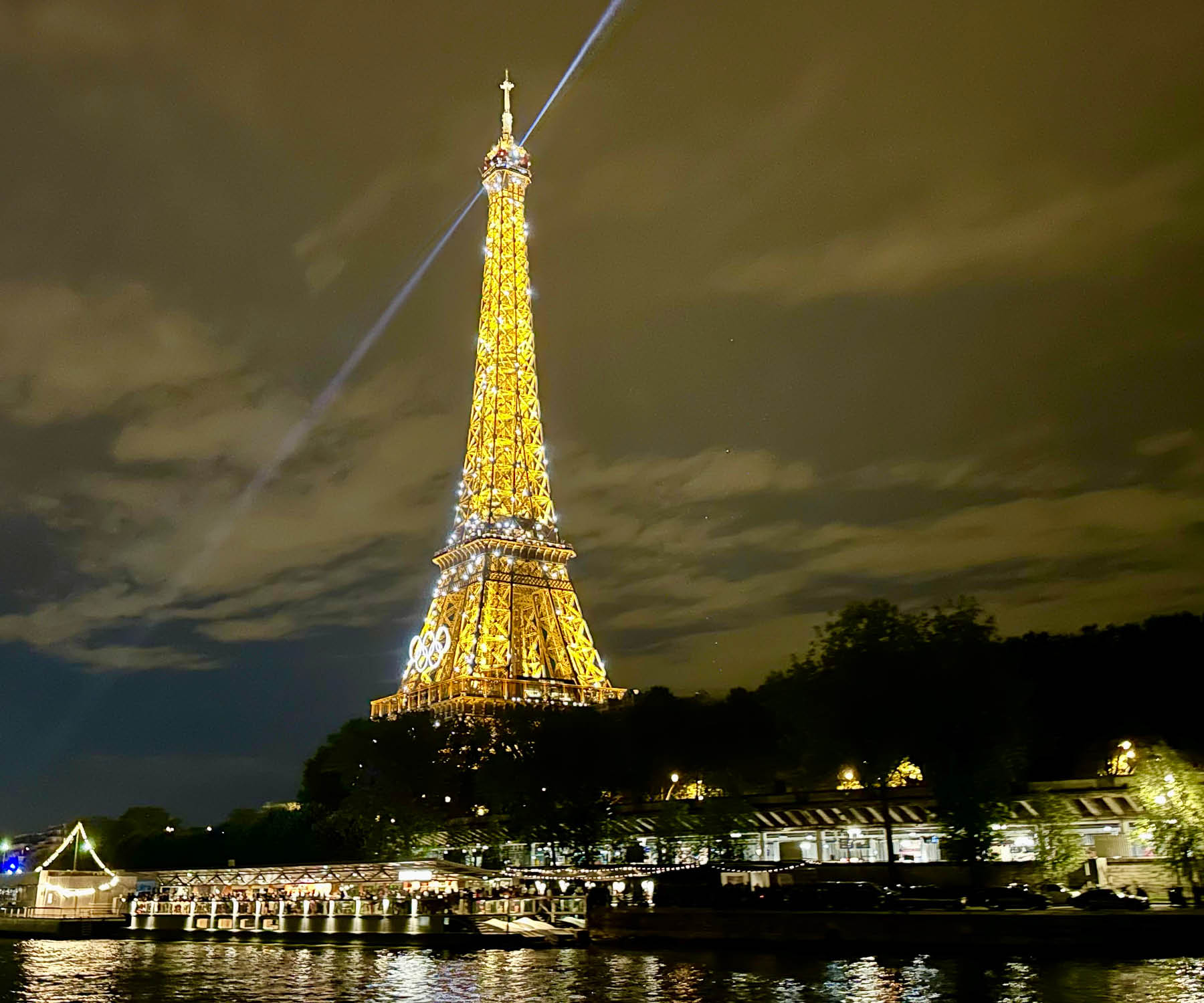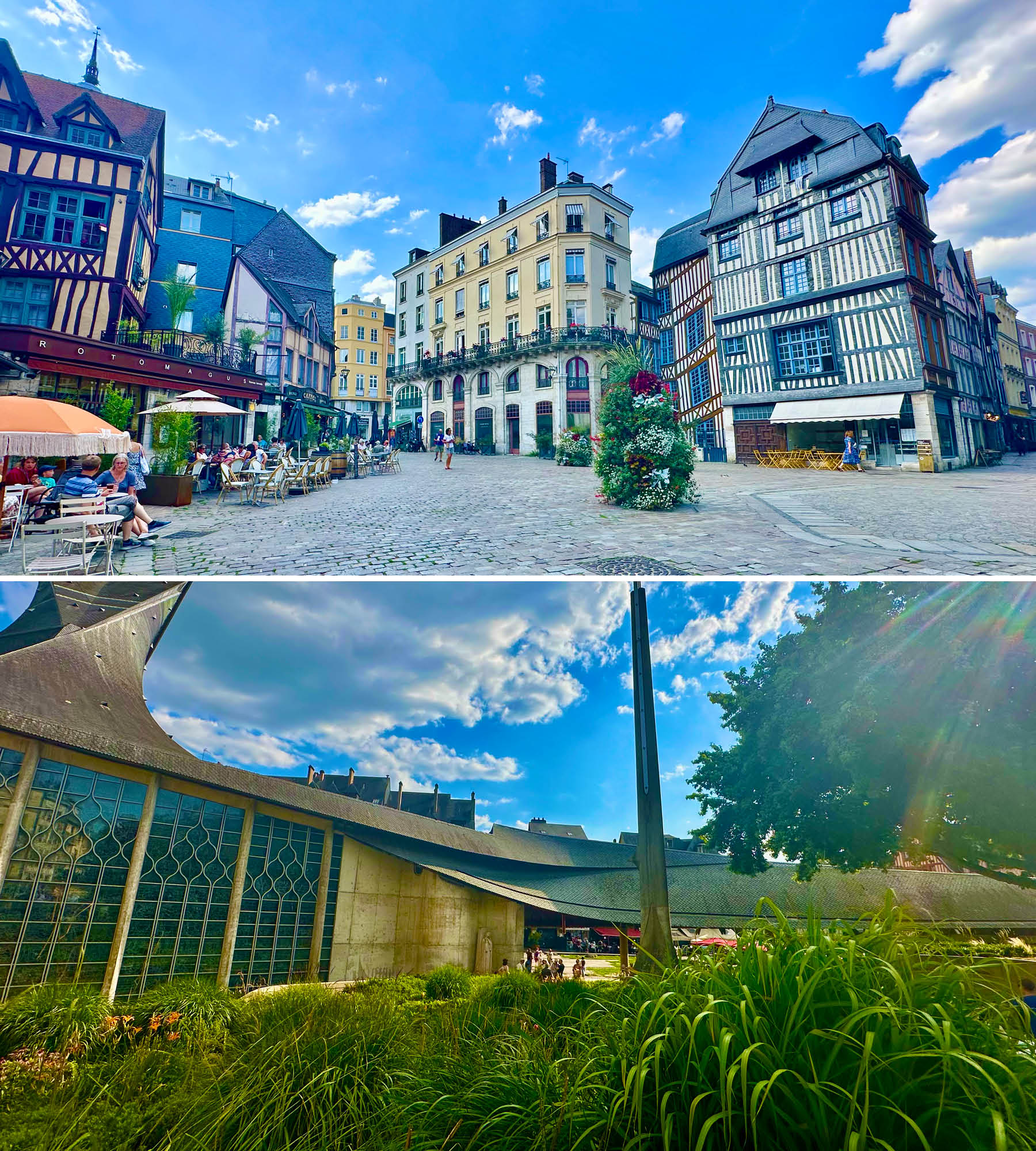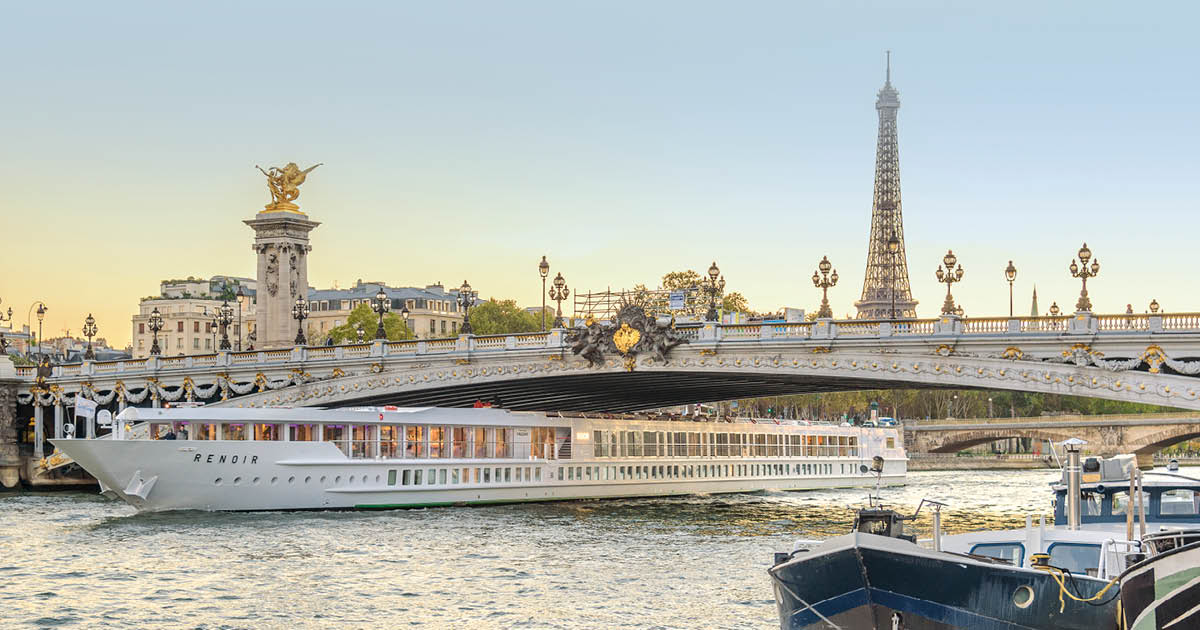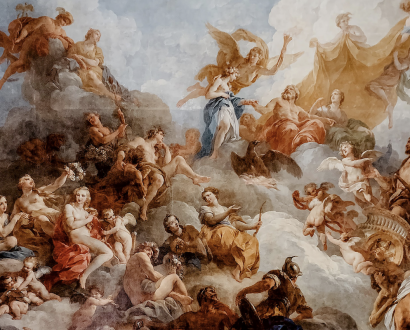It’s 11pm. We pause directly before the golden icon as it erupts in all its sparkling glory. Excited gasps escape the lips of those gathered near me. Eager to capture the perfect image, smartphones and cameras click furiously as the Champagne glasses are momentarily forgotten.
For five minutes every hour after dark, the world-famous Eiffel Tower’s sparkling illuminations always attract mega crowds. I’ve previously been jostled by those hankering for the best position at Trocadéro.
This time, however, I’m on the foredeck of CroisiEurope’s sleek, luxurious, long river cruise ship MS Renoir. With 77 passengers aboard the 117-berth ship, there’s space for everyone to easily view and snap the idyllic shot of tonight’s unique Olympic light show display.
Five hours earlier, I’d been welcomed aboard by the friendly staff, settled into my spacious double-bed ensuite stateroom, met other guests over pre-dinner cocktails, consumed a delicious four-course French dinner with paired regional wines, and even enjoyed some dancing in the lounge. The Renoir cruised the Seine past Notre Dame Cathedral, Conciergerie, Grand Palais, Musée d’Orsay, Les Invalides, Parliament and more before we said au revoir to ‘The City of Lights’.

Over the next six days, I soaked up the picturesque Seine Valley and the countryside that inspired many French Impressionist painters, stopping at Les Andelys, Rouen and Honfleur at the Seine’s estuary. I also indulged in the four delicious Cs of Normandy’s regional cuisine: silky smooth Camembert, deliciously thick cream, refreshing Calvados (apple brandy) and cider, before returning to Paris.
From my very first dinner of cantaloupe and prosciutto to succulent duck breast, melt-in-the-mouth camembert and sweet taste-tempting apple strudel, I knew my diet was out the window with the flowing river.
The tranquil views of the misty morning sunrises, reflections of colorful canal boats moored along the riverbank, quaint villages, serene countryside and graceful white swans bobbing along beside the ship, all worked harmoniously to extract every ounce of stress from my body. The onshore excursions, on the other hand, filled my mind with knowledge and wonderment.
Poignant history
The Paris Olympics wasn’t France’s only celebratory event this year. It’s also the 150th anniversary of the French Impressionist art movement and the 80th anniversary of the World War II D-Day landings.
A highlight of the excursions was a full day discovering the Normandy D-Day beaches, monuments, memorials and cemeteries. The community’s patriotism and gratefulness were evident, with French, American and British flags flying high side by side as we drove through the various towns and villages en route.

As a destination, France’s Seine balances style, charm, history, culture and cuisine, melding old and new in a gentle, nostalgic way.
Walking in the footsteps of the D-Day liberators was heart-stirring, particularly at the British Normandy Memorial at Calvados. More moving than the various inscriptions of 22,442 British Command servicemen and women from 30 different countries as well as French civilians, was the ‘Standing with Giants’ installation. It features 1,475 life-sized, black metal military silhouettes across the foreshore set against the backdrop of permanent ‘ship’ structures at sea in the bay. It readily evoked what these men and women suffered and sacrificed for Europe’s liberation.
The 45-minute film, The 100 Days of the Battle of Normandy, was projected across nine screens at the circular cinema, Arromanches 360, which artfully mixed archival and contemporary imagery with personal interviews, creating a heartfelt immersion of the battle and landings.
Rows of stark white crosses on emerald-trimmed grass, in military formation, were just as sobering at the Normandy American Cemetery and Memorial at Colleville-sur-Mer; on display were 9,238 crosses for Protestants and Catholics and 151 Star of David symbols for the Jews buried here.
An artist’s retreat
Returning to the picturesque port of Honfleur at the Seine’s entrance to the English Channel was a respite. Unlike Le Harve on the opposite bank, which was flattened during World War II bombings, Honfleur was virtually untouched.
The town’s tall, narrow, five-storey, tightly-packed half-timber houses, shops, cafes and restaurants captured my heart. They were reminiscent of piano keys, lining the quay on three sides.
It was easy to see why many artists, including Boudin, who was born here, his prodigy, Monet, born across the river at Le Havre, and Renoir, made Honfleur their home. Art galleries in the town and around the region exhibitions celebrated their famous inhabitants’ talents.

A two-hour private walking tour around Rouen also exposed a much prettier side to the capital of Normandy than initially meets the eye from the banks of the Seine. A few streets back, I discovered the beating heart of this vibrant, historical and cultural capital. From Viking raids to fires, the Hundred Years’ War and World War II bombings, Rouen has outlived a lot through the centuries.
Today, it’s known for its Gothic architecture, museums, the 14th-century astronomical clock, Gros Horloge, imposing cathedrals, half-timber buildings and detailed facades. A rich collection of artists, including Monet, Manet and Pissarro, have spent time here.
Monet created more than 40 paintings of Notre Dame de Rouen Cathedral, capturing its varying light during the day and over many months. Joan of Arc was burned at the stake in Rouen, and her ashes were then thrown in the Seine. The tall cross before the modern church at Place du Vieux Marche marks the exact spot.
Understated luxury
River cruising is an understated luxury. While we navigated many locks and cruised during the day and night, I found MS Renoir to be surprisingly smooth and didn’t experience any seasickness.
Between shore excursions, we had ample opportunities to rest and enjoy the proximity of the charming villages and countryside. What we passed during the night on the way up, we saw in daylight on the way back.

From Viking raids to fires, the Hundred Years’ War and World War II bombings, Rouen has outlived a lot through the centuries.
We also enjoyed two excellent French shows. There was always music during pre-dinner cocktails and after dinner in the lounge, and many enjoyed dancing.
As a destination, France’s Seine balances style, charm, history, culture and cuisine, melding old and new in a gentle, nostalgic way.
The real stars of the cruise were the iconic destinations and the regional fare and accompanying French wines showcased at every all-inclusive gastronomic meal. Were the few extra kilos worth it? You bet! I savored every mouthful of this finer French way of life.




